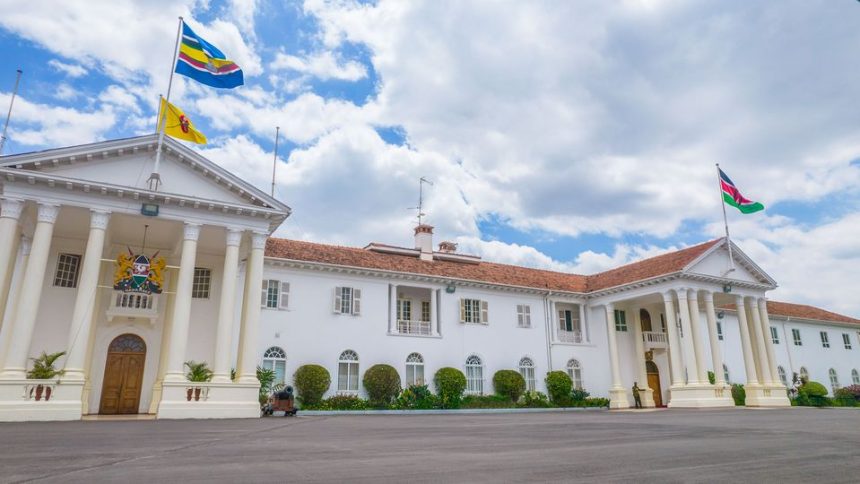The offices of President William Ruto, Deputy President Rigathi Gachagua and Prime Cabinet Secretary Musalia Mudavadi are set to receive an additional Sh3.4 billion in fresh budget revisions.
In its second 2022/23 supplementary budget that covers spending in the fiscal year to June 30, 2023, the National Treasury has proposed additional spending to the three offices amidst what has been a choke in development spending with the capital allocations set to fall by Sh39 billion.
The Executive Office of the President will see the lion’s share of budget increases at Sh3.1 billion while allocations to the Office of the Deputy President and the Prime Cabinet Secretary will rise by Sh166 million and Sh81.3 million respectively.
In contrast, State departments and ministries including the National Treasury, correctional services, infrastructure, national assembly, the Teachers Service Commission, crop development and agricultural research are among the biggest losers in the mini budget which comes days to the close of the fiscal year.
Additional spending for the Executive Office of the President covers additional allocations to salaries for newly created offices and higher expenditures for operational and maintenance budgets.
“The net change of Sh2.6 billion under current expenditure is on account of additional funding to cover shortfalls in personal emoluments and operations and maintenance expenditures for new offices in line with Executive Order 1 of 2023,” the National Treasury stated.
“The net charge of Sh465 million under capital expenditure is to facilitate refurbishment of buildings.”
State House Affairs will benefit from the largest share of newly appropriated funds, receiving Sh2.1 billion from the overall budget adjustment.
The office of the Chief of Staff and Head of Public Service will receive an additional Sh571.8 million to cover additional demands for hospitality supplies and services, purchase of office furniture and fuel and lubricant costs.
Former President Uhuru Kenyatta is, meanwhile, set to lose Sh20 million in allocations as the fourth retired President with notable cuts being effected in the budget for the routine maintenance of vehicles, other transport equipment and the maintenance of other assets.
Also Read: The updates on the first Kenya Kwanza budget
State House Nairobi has been allocated an additional Sh1.5 billion where the bulk of the monies have been appropriated to hospitality supplies and services at Sh231 million.
Domestic and foreign travel budgets are set to see additional allocations of Sh175 million and Sh15 million while the allocation to basic salaries for staff has been increased to Sh26.3 million.
The office of the State House Spokesperson is on its part set to receive Sh49.3 million and cover basic salaries to permanent employees and personal allowances.
The Office of the First Lady will meanwhile receive an additional Sh295.7 million, the bulk of which covers salaries with the balance spread between personal allowances, domestic travel and hospitality.
The Office of the Spouse to the Deputy President will however lose Sh31.9 million from its budget with Sh10 million being trimmed from domestic travel.
On the development side, the Sh465 million budget increase covers additional spending on the maintenance works at State House Nairobi and general maintenance works in State House Mombasa, Sagana and State lodges in Nakuru, Kakamega, Kisumu and Eldoret.
Increased appropriations to the offices of the Deputy President and the Prime Cabinet Secretary cover increases to operational and maintenance budgets including salaries and personal allowances, and hospitality services.
Following the 1st Executive Order of 2023, the office of President now has 13 key offices including the office of fiscal affairs and budget policy, office of economic transformation, office of the women’s rights advisor and the office of the Council of Climate Change Advisor.
The recently created offices have had the effect of bloating government spending on wages and salaries with the national government bursting the wage bill in the first nine months of the current financial year by nearly Sh16.6 billion.
Numerous appointments by the new administration in other areas of the public sector have also weighed heavily on the government’s wage bill.
For instance, the State departments were increased to 51 from the previous total of 44 while the new administration further appointed 50 chief administrative secretaries.
The bursting of the wage bill in the nine-month period came amidst delays in the salaries of public servants with the government admitting to liquidity challenges.
Nevertheless, the bloated wage bill has raised concerns over potential double speak by the new administration which had at the onset pledged to effect cuts to the budget in pursuit of fiscal consolidation.
The government had for instance targeted budget cuts of up to Sh300 billion in the fiscal year beginning July 1.
The new Sh3.68 trillion 2023/24 budget is nevertheless incremental to the 2022/23 budget which was originally approved at Sh3.359 trillion before subsequent amendments.
Despite struggles to rationalize the budget, the government has retaliated that it remains on a fiscal consolidation path which will be anchored on the expectation for greater revenue mobilization in the next budget cycle.
“The government fiscal policy for FY 2023/24 and the medium-term budget aims at undertaking a growth-friendly fiscal consolidation plan to ensure debt sustainability. This will be achieved through improved revenue collection, primarily through the broadening of the tax base, and containing overall expenditure,” National Treasury CS Prof. Njuguna Ndungu told MPs yesterday.




